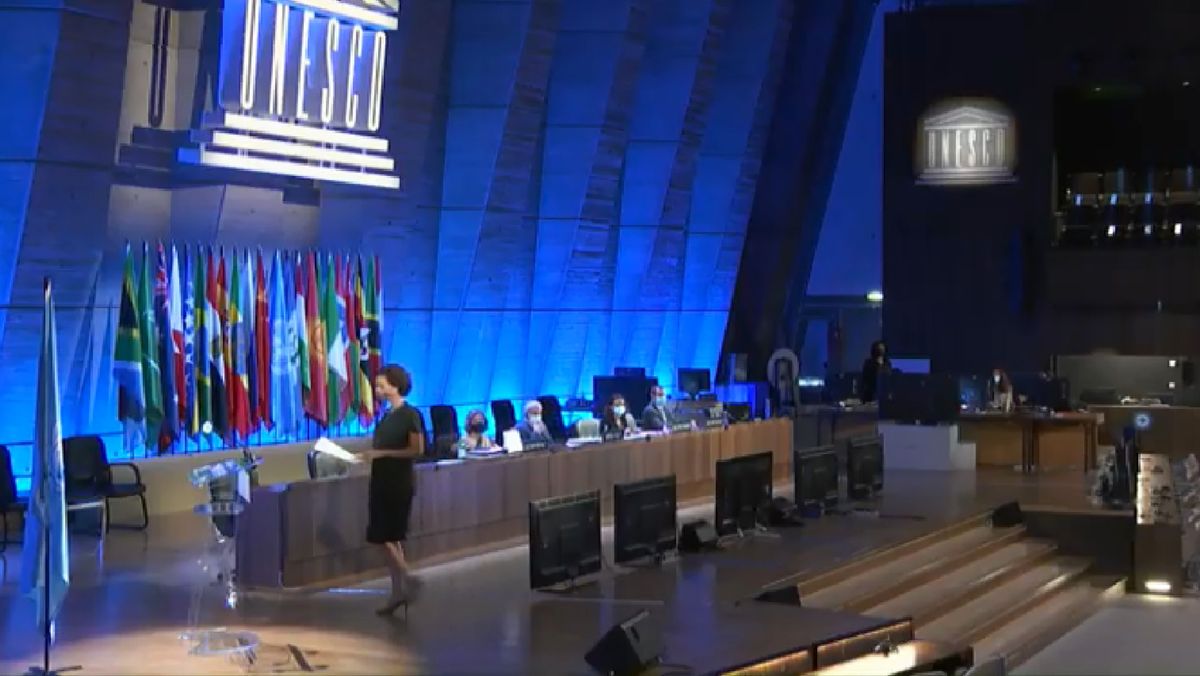Following pressure from global cultural organisations, the United Nations Educational, Scientific and Cultural Organization (Unesco) postponed its 45th annual World Heritage Committee session, which was scheduled to take place in Kazan, Russia from 19-30 June. The annual meeting is where new additions to the list of World Heritage sites are approved, a vital Unesco undertaking. Though many had advocated to have the meeting relocated following the Russian invasion of Ukraine, Unesco has opted instead to postpone it indefinitely.
An open letter penned by Laura Davies, Unesco ambassador for the UK, which was published on 8 April and signed by Unesco representatives from 46 countries, states that, “According to the figures recently released by the Unesco Secretariat, 53 cultural buildings (historical monuments, places of worship, libraries, etc.) had been damaged or destroyed by 31 March.” It’s now estimated that the number of Ukrainian cultural sites damaged or destroyed is closer to 100.
The letter continues, “The heritage of Kharkiv, a Unesco Creative City, paid a particularly heavy price, as did the centre of Chernihiv, which is on Ukraine’s tentative World Heritage List. The terrible images of the bombing of the Mariupol theatre, attested by Unesco through satellite imagery, weigh particularly heavily in our minds. And the damage continues.” The letter adds that to hold the planned meeting in a country that is actively “destroying ‘outstanding universal value’ in Ukraine” would tarnish Unesco’s credibility. The letter also argues for the importance of holding the meeting, stressing that it should be relocated rather than canceled.
Ukraine is home to seven World Heritage sites, about which Unesco has said the organisation is “gravely concerned”. Unesco director-general Audrey Azoulay said in March that “we must safeguard this cultural heritage, as a testimony of the past but also as a vector of peace for the future, which the international community has a duty to protect and preserve for future generations”.
The Unesco World Heritage Committee is made up of 21 member states elected from the 194 countries that have ratified the World Heritage Convention. In 2019, Russia was elected to a four-year term. According to Agence France-Presse, the Russian ambassador to Unesco, Grigory Ordzhonikidze, who is also the current president of the committee, proposed the postponement.
One diplomat, who asked not to be named, told AFP that “this consensus makes it possible to approach things calmly and to avoid that world heritage, which is normally a cause for harmony, does not find itself caught up in a war.” A proposal to hold the meeting in a hybrid format incorporating both in-person and remote attendance, as was done in 2021, was not supported. It is not yet known when and where the meeting will be held.
In a statement employing the euphemistic term by which the Russian government has described its war on Ukraine, Ordzhonikidze said, “In connection with the conduct of a special military operation by Russia to protect the republics of Donbass, the Westerners launched an unprecedented diplomatic persecution of our country, aimed at curbing the constructive contribution that we traditionally make to the statutory activities of the organisation, including in the area of world heritage conservation.”


